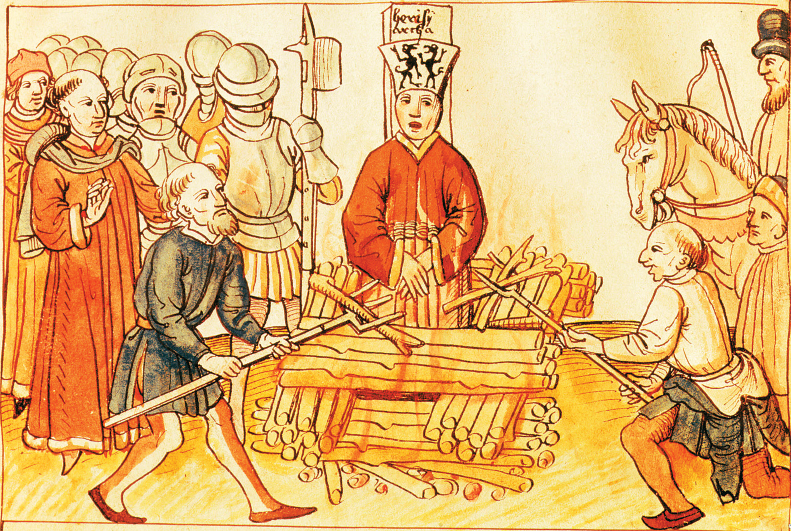Why did the church come under increasing criticism?
IIN TIMES OF CRISIS OR DISASTER, people of all faiths have sought the consolation of religion. In the fourteenth century, however, the official Christian Church offered little solace. Many priests and friars helped the sick and the hungry, but others paid more attention to worldly matters, and the leaders of the church added to the sorrow and misery of the times. In response to this lack of leadership, members of the clergy challenged the power of the pope, and laypeople challenged the authority of the church itself. Women and men increasingly relied on direct approaches to God, often through mystical encounters, rather than on the institutional church.

The Execution of Jan HusThis fifteenth-